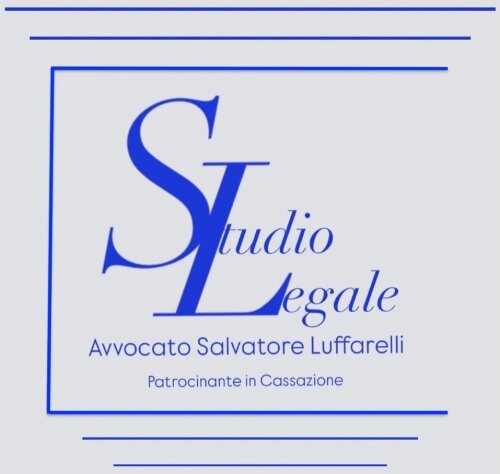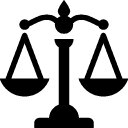Best Education Law Lawyers in Italy
Share your needs with us, get contacted by law firms.
Free. Takes 2 min.
Or refine your search by selecting a city:
List of the best lawyers in Italy
About Education Law in Italy
Education Law in Italy is a specialized field focused on the regulation, governance, and management of education at all levels. It encompasses a variety of legal disciplines, including administrative law, constitutional rights, labor law, and disability rights. The aim is to ensure that the Italian education system operates fairly, effectively, and in compliance with national and European standards. It covers everything from compulsory education, teacher qualifications, and curriculum standards, to higher education and vocational training. Legal frameworks also touch upon the rights of students and teachers, academic freedoms, discrimination, and student welfare.
Why You May Need a Lawyer
Individuals or organizations may seek legal assistance in the field of Education Law in Italy for several reasons. Here are some common scenarios:
- Disputes over school admissions or expulsions.
- Issues related to special education needs and access to resources.
- Employment disputes between teachers or academic staff and educational institutions.
- Accusations of fraud in educational results or accreditation processes.
- Cases involving discrimination or violation of students' or teachers' rights.
- Legal challenges related to the establishment or management of private educational institutions.
- Compliance with educational regulations and inspection outcomes.
Local Laws Overview
Italy's education system is governed primarily by the Italian Constitution, which mandates free education for children, and various legislative acts such as the Education Reform Acts. Key aspects include:
- Primary and Secondary Education: Education is mandatory from ages 6 to 16, regulated by a national curriculum framework.
- Higher Education: Universities enjoy a degree of autonomy but must comply with national standards and EU educational directives.
- Special Education: Inclusive education policies ensure accessibility for students with disabilities.
- Teachers’ Rights: Employment law covers contracts, working conditions, and dispute resolution mechanisms.
- Student Rights: Protections against discrimination and assurances of academic fairness are legislated.
Frequently Asked Questions
What is the legal school leaving age in Italy?
The mandatory school leaving age in Italy is 16.
Can a school refuse admission to a student with special needs?
No, Italian law requires schools to accommodate students with special needs and make necessary adjustments to provide an inclusive education.
Are teachers allowed to strike in Italy?
Yes, teachers in Italy have the right to strike, but specific legal procedures and notice periods must be followed.
What are the consequences of not complying with compulsory education laws?
Parents who fail to ensure that their children attend school until the age of 16 could face fines and social services intervention.
How are disputes between schools and families resolved?
Such disputes are often resolved through mediation, although formal legal action through the administrative courts is possible.
Is homeschooling legal in Italy?
Yes, homeschooling is legal, provided the educational provision meets national standards and authorities are notified.
What recourse do students have against unfair treatment by educational institutions?
Students can lodge complaints with the institution, seek mediation, or pursue legal action through courts or administrative bodies.
Are private schools subject to the same regulations as public schools?
Private schools must adhere to regulations regarding curriculum standards and student welfare, but they have more autonomy in management.
Do foreign students have the same rights as Italian students?
Yes, foreign students are entitled to the same educational rights and access as Italian students under national and EU laws.
What is the role of the Ministry of Education in Italy?
The Ministry of Education is responsible for national educational policy, curriculum standards, and oversight of institutions.
Additional Resources
Here are some resources and organizations that can be helpful for individuals seeking legal advice in Education Law in Italy:
- Ministry of Education, Universities and Research (MIUR)
- National Association of Italian Legal Experts in Education
- Regional Educational Offices
- Italian Institute for Educational Research (INDIRE)
- Legal aid services and juristic advisory centers
Next Steps
If you need legal assistance in Education Law, consider the following steps:
- Identify the specific issue and gather all relevant documentation.
- Consult with a lawyer who specializes in Education Law to understand your rights and options.
- Contact local educational authorities or associations for guidance and support.
- Consider mediation as a first step in resolving disputes before resorting to litigation.
- Ensure you stay informed about any updates or changes in the legal framework affecting your case.
Lawzana helps you find the best lawyers and law firms in Italy through a curated and pre-screened list of qualified legal professionals. Our platform offers rankings and detailed profiles of attorneys and law firms, allowing you to compare based on practice areas, including Education Law, experience, and client feedback.
Each profile includes a description of the firm's areas of practice, client reviews, team members and partners, year of establishment, spoken languages, office locations, contact information, social media presence, and any published articles or resources. Most firms on our platform speak English and are experienced in both local and international legal matters.
Get a quote from top-rated law firms in Italy — quickly, securely, and without unnecessary hassle.
Disclaimer:
The information provided on this page is for general informational purposes only and does not constitute legal advice. While we strive to ensure the accuracy and relevance of the content, legal information may change over time, and interpretations of the law can vary. You should always consult with a qualified legal professional for advice specific to your situation.
We disclaim all liability for actions taken or not taken based on the content of this page. If you believe any information is incorrect or outdated, please contact us, and we will review and update it where appropriate.
Browse education law law firms by city in Italy
Refine your search by selecting a city.














